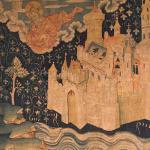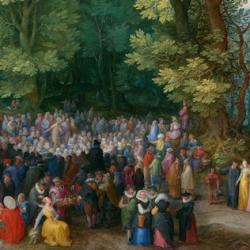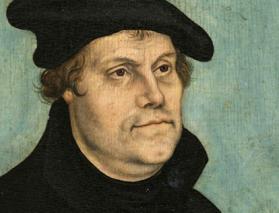In his book on giving and forgiving (Free of Charge), Miroslav Volf summarizes Luther’s metaphor of the “flow” of God’s love.
Human love sometimes sucks the life and love out of us, but not God’s love. Rather, as Luther says, “it flows forth and bestows good” (quoted 49). It flows to us and brings us benefits, but it doesn’t stop there: “were were created to be and to act like God” so we become givers as well as recipients of gifts. God’s love makes us flourish and then it flows on, making us participants in God’s gift-giving.
Luther puts it this way: “Good things flow from Christ and are flowing into us. He has assumed us and acted for us as if he had been what we are. These good things flow from us on to those who have need of them so that we should lay before God our faith and righteousness that they may cover and intercede for the sins of our neighbor which we take upon ourselves, and so labor and serve them as if whey were our very own” (quoted 50). We are destinations for God’s grace; we also “find ourselves midstream” (Volf’s phrase, 50).
We become instruments and conduits of God’s gifts to others. Instruments, not agents, not ourselves the source of the gifts. This image sounds impersonal, as if we were nothing but channels.
For Luther, the reality is deeply personal. We aren’t instruments of a distant puppet master, but of the Christ who indwells us. We aren’t the agents of our giving because Christ is, and our giving “is, as it were, an echo of his” (50). Luther: “we are named after Christ, not because he is absent from us, but because he dwells in us; that is, because we believe in him and are Christs to one another and do to our neighbors as Christ does to us” (quoted, 51). Luther takes this in so strong a sense that, Volf says, he teaches that “God never works without us.”
Worry that the self is being lost by absorption into Christ is unfounded. Luther does say that the Christian “lives not in himself but in Christ and in his neighbor . . . He lives in Christ through faith, and in his neighbor through love” (quoted 52). We may not want this perichoretic life, but it’s the life of love, the life to which we were destined by creation: “Since God creates the self to be indwelled by Christ, that self will be fulfilled only if it draws the living water from the well-spring of love’s infinity and passes it on to its neighbors” (52).
Volf stresses that we are called to live in the flow in everyday life, not merely in worship or moments of ecstasy: “God’s gifts flow to others above all when the community scatters, having been nourished in God’s presence, when we are back home with our families or at work. . . . Every word and every deed, every thought and every gesture, even the simple act of paying attention can be a gift and therefore an echo of God’s life in us” (53).
Life goes on in humdrum ordinariness and then “You get up from the couch to play with your kidsor you give your time and energy to help educate a prisoner or lend and ear to an elderly person – that’s extraordinary.” With every gift, “the barrier between the sacred and the mundane” breaks and “life becomes extraordinary because God’s own gift giving flows through the giver” (54). Life becomes extraordinary because you’re in the flow.











